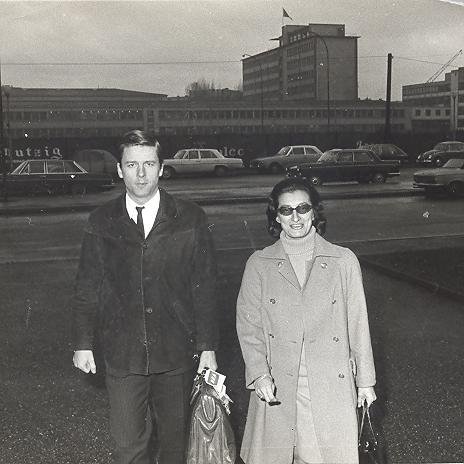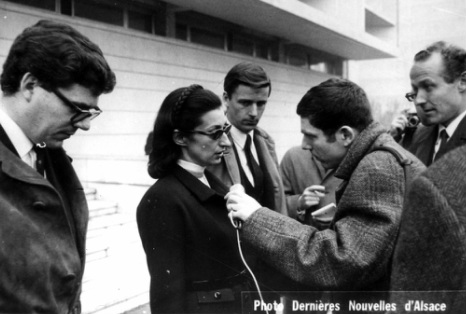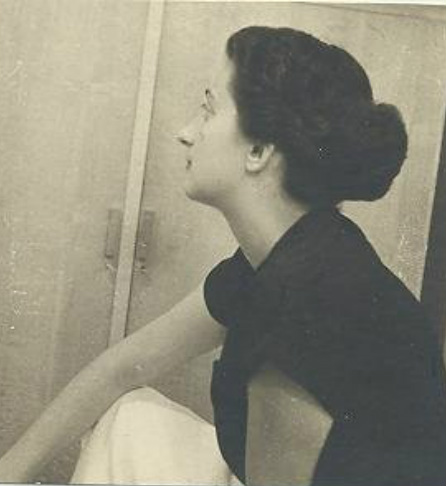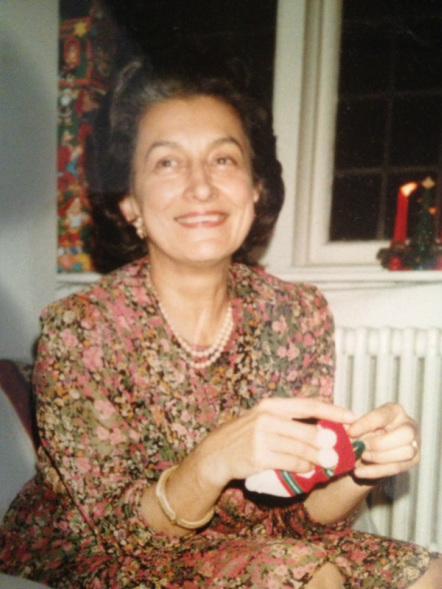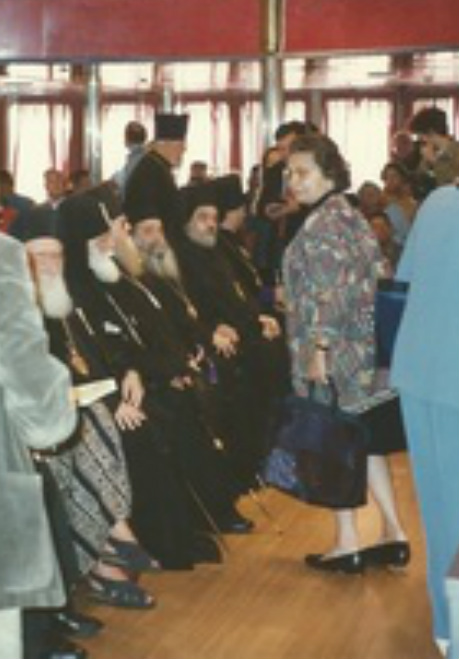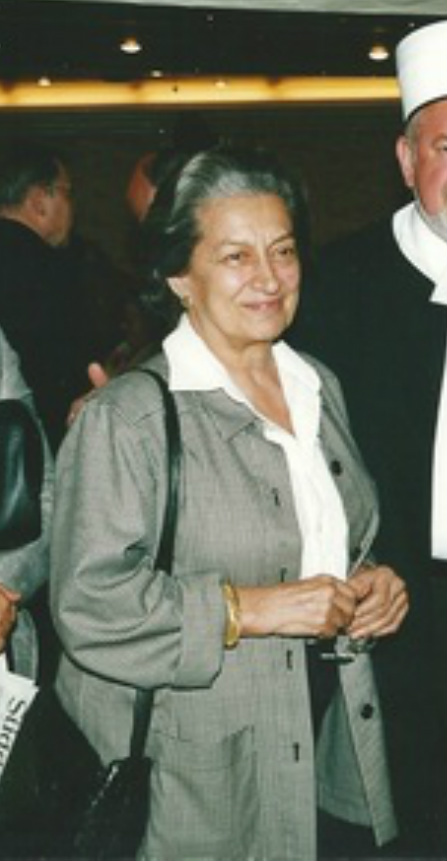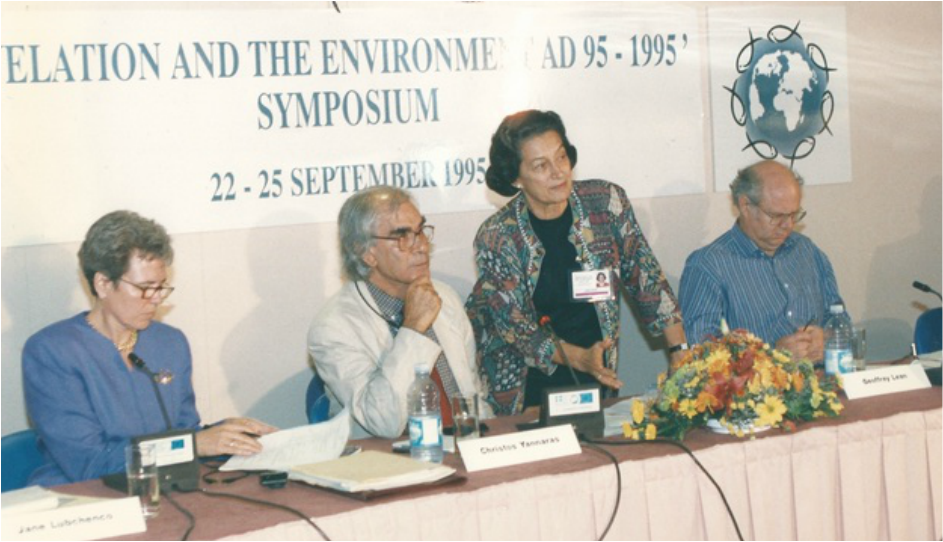|
MARIA HARY BECKET (1931-2012)
Maria died in Athens on October 29, 2012. Requiem for Maria, 2nd November, 8am, St Paul's Cathedral, London. A very moving memorial service was held on the afternoon of December 8th at the Church of Aghios Nikolaos Ragavas attended by an overflowing crowd come to mourn and honor Maria. Four brief talks were given, Marianna Koromila, Theodor Papalexopoulos, Selcuk Erez and the final one by former Prime Minister Costas Mitsotakis which was much commented on given its warmth and his willingness to address the charges leveled against Maria. The talks can be found on site 'memorial' page. After the service a film of Maria put together by Jim Whitney was shown and is available here on the website. Click on http://vimeo.com/54749693 Watch Vandana Shiva on her friend Maria http://youtu.be/EBZAPp8REXQ?hd=1 Listen to audio below where Maria talks of her life and how memories remain beyond the grave. Maria and James Becket on their way to the Court of Human Rights in Strasbourg.
'We die twice, once with our last breath and once when our name is last spoken by someone who knew us'.
|
A GREEK HERO HAS DIED
In Paris in late 1969, when junta foreign minister Pipinelis walked out of the Council of Europe meeting to avoid the junta’s imminent expulsion, a single figure stood at the top of the stairs. As he passed he hissed, ‘you will pay for this, this is your fault’. And that was in large measure true. That person was Maria Becket. It was she who had worked over two years with the three Scandinavian governments to bring the Greek Case before the European Human Rights Commission. And it was she who had organized the escape of torture victims from Greece to appear before the commission in Strasbourg. The commission found Greece guilty of human rights violations, notably the systematic use of torture. The Bouboulinas Street torture center became notorious (ironically named for a woman hero of another Greek liberation struggle). Reacting on that fateful day of April 21, 1967, she had naively sent a telegram protesting the military coup. By the time the junta fell in 1974 she had covered the entire range of political actions from words to supplying resistance movements inside Greece. The constant travel to Scandinavia, to the training camps of the Middle East, to her own clandestine trips into Greece, to developing media and political relations, she personified the behind the scenes, selfless struggle for democracy in her native land. As a child she had lived through Metaxas’s 'Oxi', through the occupation when one morning she found the starved body of a girl her own age on their doorstep. This memory would always haunt her as why was it this child and not she. Her father was on the Communists’ death list and when EAM ELAS occupied Athens, he hid waist deep in water in a Pangrati kitchen. When he came out his hair was totally white. He would suffer a persecution mania so extreme it culminated with him attempting to strangle Maria, the one person he would let close. Released after shock treatment, he committed suicide. In the 50’s and early 60’s she received a Phd in Byzantine History from London University, married and had two children. Living in Geneva in 1967, her life became that of a militant battling for the restoration of democracy in Greece. She made important contacts with governments, the media, and liberation movements around the world. When the junta overthrew Makarios in Cyprus, she set up a radio station outside Beirut, Voice of Free Cyprus, broadcasting Makarios’s own voice proving he was alive. Arafat offered through her to send 4000 troops to Cyprus to defend Makarios, but the Archbishop turned the offer down and took his case to the UN in New York. When the junta fell, Karamanlis offered her the post of Ambassador to the US. She turned it down as she had every other similar offer. She never had any political ambitions, she was her own person, always shunning publicity, so few knew what she had achieved. Especially when others, particularly politicians, were only too willing to write their own self-serving versions of history. In the last years of her life she turned all her energy and all her inherited wealth to the cause of the environment. Working with the Ecumenical Patriarch Bartholomew of Constantinople, she organized, raised the money and ran eight successful symposia bringing together scientists and religious leaders to find solutions for our overtaxed planet centering on water. Symposia were held not in a city but on the body of water whether in the Arctic or the Amazon or the Aegean or the Adriatic. Her mother’s side of the family was from Constantinople and she always felt an obligation that an ancestor had let the invaders into the besieged city in 1453. True or not, she wanted to strengthen the Patriarchate’s precarious position in this now Turkish city. It was through these symposia and thus through Maria’s efforts that Bartholomew achieved international stature as “The Green Patriarch’. Maria was never one interested in power or wealth, and in a culture that celebrated the powerful and the wealthy, she was different, and that allowed her to always be her own self. A self that overcame so many obstacles to achieve so much and affect positively so many lives. The following is a translation from the Greek speech.
Ο/Η Ανώνυμος έγραψε:
Η Μαρία Μπέκετ ήταν μια Ελληνίδα και ταυτόχρονα μια Πολίτης του Κόσμου με την ιδανικότερη έννοια αυτών των όρων. Επίμονη πάντοτε στους στόχους της, αυστηρή πρώτα με τον εαυτό της και μετά με τους γύρω της, ανυποχώρητη στις απόψεις της για τις αξίες που όχι απλώς πίστευε αλλά σιωπηλά και με αυτοθυσία υπηρετούσε, ήταν φάρος για όσους ήταν τριγύρω της και καταφύγιο για όποιον είχε την ανάγκη της. Δεν της άκουγες ποτέ να διαμαρτύρεται ή να ασχολείται με προσωπικά της προβλήματα. Πάντοτε την απασχολούσαν οι Αλλοι και ο τρόπος που έπρεπε να βοηθήσει, την Ελλάδα για την απαλλαγή απο τη Χούντα - την Κύπρο για τα δεινά της - το Οικουμενικό Πατριαρχείο για τη διεθνή του προβολή και τόσα άλλα.... Η ανιδιοτέλεια ήταν απο τα κύρια και συγχρόνως τα πιο δυσνόητα, για όλους, χαρακτηριστικά της. Κανείς δεν μπορούσε να πιστέψει οτι η Μαρία ό,τι έκανε το κατέθετε πάντοτε σε κοινή ωφέλεια. Μόνο όσοι τη γνωρίζαμε καλά, ξέραμε οτι η Μαρία Μπέκετ είχε αφιερώσει όλες της τις δυνάμεις, βιολογικές και υλικές, για τους Αλλους. Η ίδια είχε ελάχιστες ανάγκες και ακόμη λιγότερο τις ικανοποιούσε. Η Μαρία, όπως όλοι οι Σημαντικοί αυτού του Τόπου δεν είχε το τέλος που της άξιζε. Τούτο γιατί της έλειπε μια σπουδαία "αρετή". Η ικανότητα να υπερασπίζεται τον εαυτό της. Αυτή η καταπληκτική γυναίκα που υπερασπίστηκε εκατοντάδες ανθρώπους και πάμπολλες αξίες στη ζωή της, δεν μπορούσε - γιατί δεν ήθελε - να υπερασπιστεί τον εαυτό της. Ετσι όταν το ελληνικό κράτος την κατηγόρησε για κακοδιαχείριση των πόρων του ΜΚΟ που ή ίδια έστησε και εν πολλοίς χρηματοδότησε για τη Διεθνή προβολή του Οικουμενικού Πατριαρχείου, εκείνη αρνήθηκε να αποδείξει την αθωώτητα της και προτίμησε να θέσει τη ζωή της σε ιλιγγιώδη αντίστροφη μέτρηση, αρνούμενη ,σχεδόν, να δεχθεί τροφή επι εξάμηνο, ενώ ο καρκίνος μέσα σε δυο μήνες ολοκλήρωσε το έργο του κράτους. Την Μαρία Μπέκετ θα την θυμόμαστε πάντα όσοι την ζήσαμε και η Ελλάδα θα μας πληγώνει πάντα όσοι την ζούμε...... |
